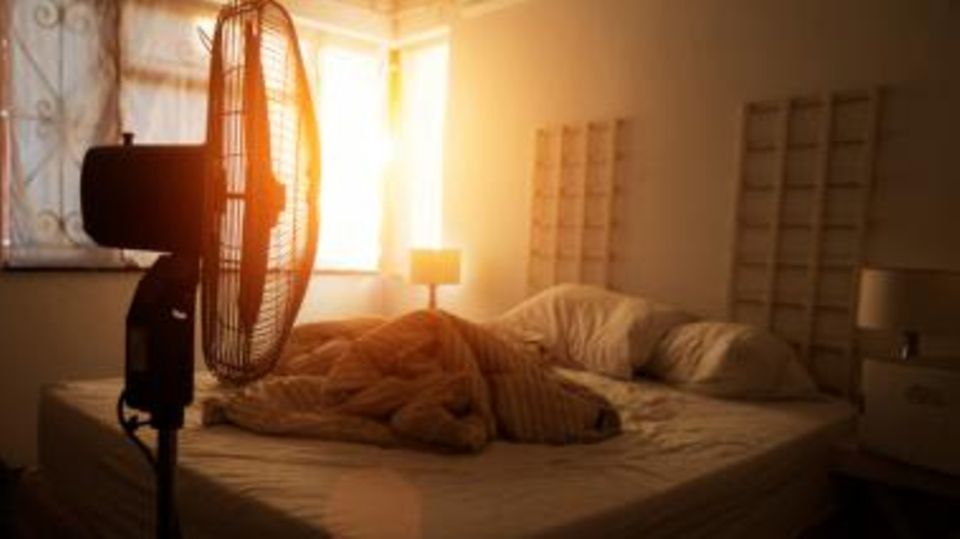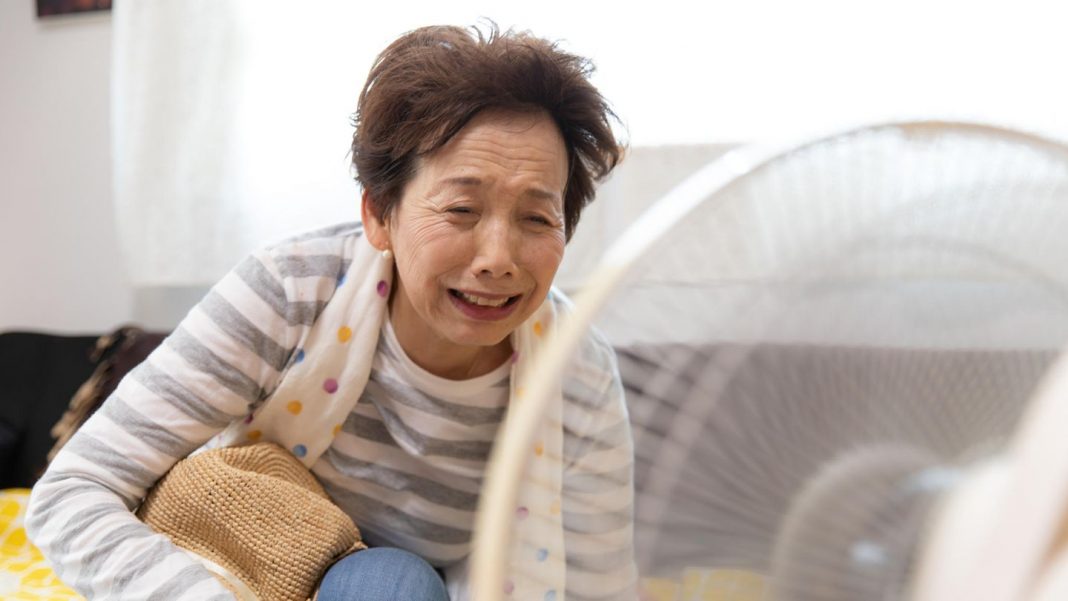Anyone who goes to sleep with a fan running is in mortal danger. At least that’s what many people in South Korea believe. But is the superstition true? That’s the myth.
Summers in South Korea are hot and humid. The thermometer often measures temperatures of more than 30 degrees in the summer months, even at night it is still relatively warm. Since it seems like a good idea to cool off while sleeping with a fan or air conditioning. But in the eyes of many South Koreans, this is a deadly risk.
The myth of the” fan death “– in Korean” seonpunggi samang ” – says that you can die if you are in a closed room with an overnight fan or air conditioner. Widespread theories about death by fans, are alleged chemical change in the air; air vortices that prevent breathing and hypothermia by the air flow.
Even state authority warned about fans
In fact, South Korean media report deaths allegedly related to fans. The Korea Herald wrote in an article ten years ago:” A man reportedly died on Monday morning after sleeping while the fan was running. The 59-year-old victim (…) was found dead with the fan pointed directly at him.”
And as if that were not enough: even the South Korean Consumer Protection warned in 2006 in a communication about the supposedly deadly danger of the fans. “When bodies are exposed to electric fans or air conditioners for too long, it leads to water loss and hypothermia. With direct contact with a fan, this can lead to death by increasing the concentration of carbon dioxide saturation and decreasing the concentration of oxygen. The risks are higher for the elderly and patients with respiratory problems.”
Between 2003 and 2005, a total of 20 cases were reported involving suspected asphyxiation caused by fans and air conditioners. The authority therefore recommended not to lie directly in the air flow of the fan, to leave the doors open and to use a timer on the device. In fact, in South Korea, many fans are sold with time switches that automatically turn off after a time.
Experts consider fan myth nonsense
The South Korean fan manufacturer Shinil Industrial Co. even prints warnings on its products and asks customers to keep the fans away from people at night. “This product can cause suffocation or hypothermia,” the warning says.
Sounds pretty unsettling. But is it right?
One reason for the persistence of superstition is a lack of investigation by the police, Yoo Tai-woo, a professor at Seoul National University Hospital, told Reuters. “People believe in death by fans because – first – they see a corpse and-second – a running fan,” Yoo said. “But normal, healthy people do not die because they slept with the fan running.”
Dr. Lee Yoon-song, a professor at Seoul National University’s Faculty of Medicine, also considers superstition to be nonsense. According to the news portal “Gwangju News”, he has autopsied some of the alleged fan deaths and found out that the fan is not the cause of death. Most of the victims were elderly people who already suffered from serious health problems such as heart or lung disease or alcoholism. The heat does the rest.

Many theories of the origin of the myth
But where does the myth come from? And why does he remain so persistent to this day?
Some suspect that this is due to a government power-saving campaign during the military dictatorship in the 1970s. At that time, there was actually the first reported death in connection with the “fan death”, according to Reuters.
According to the US magazine” Slate”, however, an article in a South Korean newspaper in 1927 warned about the still quite novel electric fans. This “new technology” could cause nausea, suffocation and facial paralysis. “The rotating fan blades create a vacuum, and the intensity of the resulting air flow always leads to an undersupply of oxygen to the lungs,” the newspaper warned at the time.
Dr. Laurence Kalkstein, a climatologist at the University of Miami, may also have played a role. According to him, fans could be a “minor” factor in heat stress and dehydration. “If an elderly person holds a small table fan directly in front of his face to cool down ( … ), a so-called evaporation possibility arises, “he told”Slate”. “The moisture of the body evaporates much faster, and if it is not restored quickly enough, this can be a heat problem for.”
“Opening windows is always a good idea”
To the doom limestone was a visit to the Asian country in 2008 to inform the meteorological administration about heat warning systems. In doing so, he told a journalist – unaware of the myth of “fan death” – that people should be careful when using fans in enclosed spaces. His statement made it into the South Korean media.
Today he is more careful with the formulation. His references and the Korean “misconception” would differ considerably. One had to be careful with fans only under certain conditions, and the effect would have nothing to do with suffocation or hypothermia, “Slate”.
Dr. Lee Yoon-song also provides an explanation why superstition does not disappear. Media outlets would not do a good job of reporting the facts if they published stories about deaths involving electric fans.
Conclusion: fans are not death with rotor blades. There are other causes that lead to death-although a fan can lead to health problems under certain circumstances. Nevertheless, ” opening a window, in my opinion, is always a good idea, since it lets in fresh air and reduces moisture in the house,” Arctic biologist Brian Barnes told Reuters.
Source: “The Korea Herald”, Korea Consumer Protection Board, Reuters News Agency,” Slate”,”Gwangju News”




